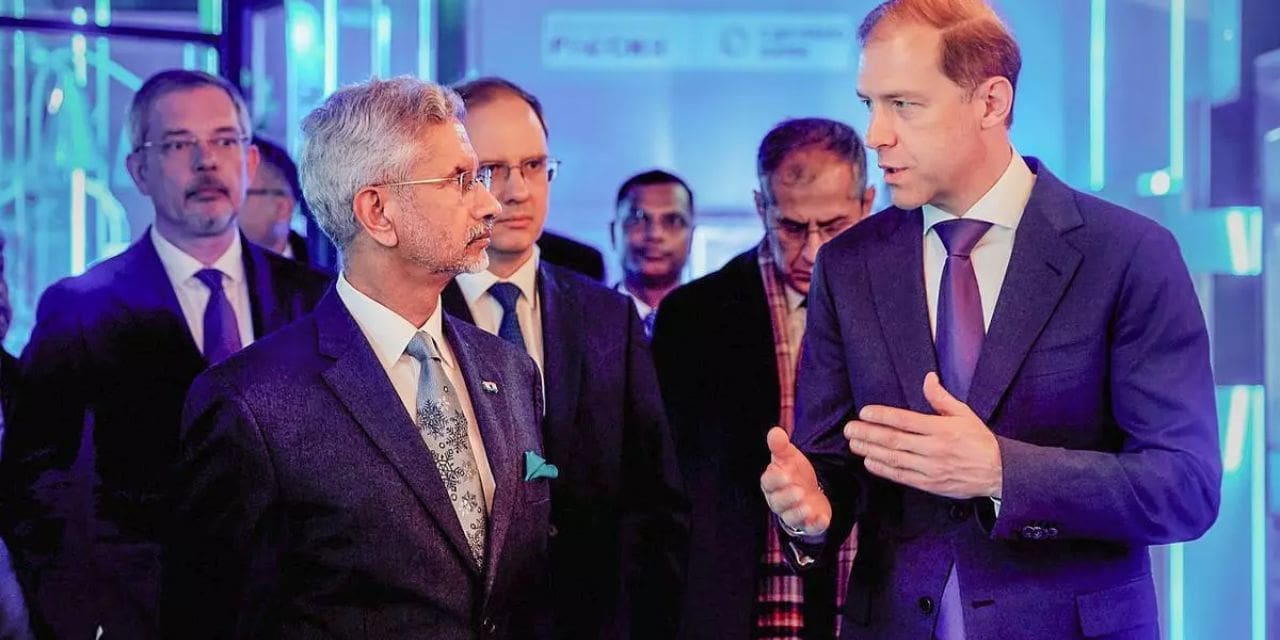India and the five-member Eurasian Economic Union (EaEU), led by Russia, are expected to commence discussions on a free trade agreement (FTA) in the coming months. The agreement aims to boost India’s exports to the region, specifically in sectors such as engineering goods, electronics, and agriculture, to promote more balanced trade.
During a meeting in Moscow on Tuesday, India’s External Affairs Minister S Jaishankar and Russian Deputy Prime Minister Denis Manturov discussed intensifying India’s engagement with the Russian Far East, including starting negotiations on the proposed FTA. Jaishankar took to Twitter, stating, “Finalised the cooperation program on the Russian Far East. Expect to hold an early meeting of EaEU-India FTA negotiators. Will jointly organise connectivity events across land and maritime corridors.”
The discussions between Jaishankar and Manturov also covered various international issues, including the Indo-Pacific, the Ukraine conflict, the Gaza situation, Afghanistan and Central Asia, BRICS, SCO, G20, and the UN. Jaishankar later met with his Russian counterpart Sergey Lavrov to discuss bilateral economic and inter-governmental cooperation.
Talks on the FTA between India and EaEU member countries, namely Russia, Kazakhstan, Belarus, Armenia, and Kyrgyzstan, began in early 2020 but were disrupted by the Covid-19 pandemic. While negotiations have resumed over the past few months, the finalisation of the agreement awaits further discussions.
Regarding trade, India is keen on enhancing exports to Russia, as its trade deficit with the country has significantly widened due to increased imports of discounted oil following the Russia-Ukraine war and Western sanctions on Moscow. In 2022-23, India’s imports from Russia rose 368% year-on-year to $46.2 billion, mainly driven by higher oil purchases. Meanwhile, its exports to Russia during the same period saw a 3.3% decline, resulting in a trade deficit of $43 billion.
India aims to mitigate this trade imbalance and establish a more balanced and sustainable trade relationship with Russia and other EaEU members. India has been actively working to boost exports, focusing on sectors such as agriculture and engineering. However, Western sanctions have affected the exports of electronics and telecom goods to Russia and Belarus.
On the other hand, Russia is interested in increasing imports from India to ensure the success of the rupee payment mechanism, which the two countries have implemented to circumvent the impact of sanctions. Due to lower imports from India, Russia’s rupee balance has accumulated in the account.
Overall, negotiations on the proposed FTA between India and EaEU are a significant step towards strengthening economic ties and paving the way for increased trade cooperation between the two regions. The talks are expected to expand opportunities in sectors of mutual interest further and address the trade imbalance, ultimately contributing to the growth and development of both economies.

